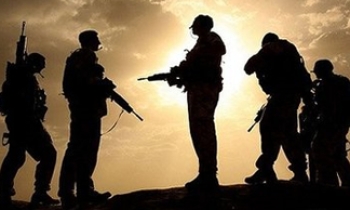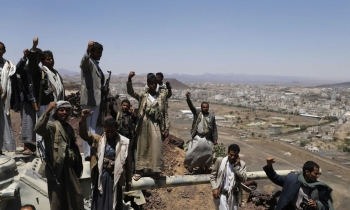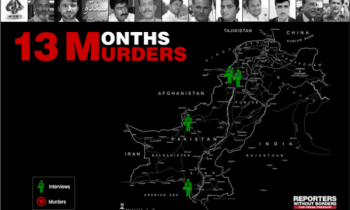Feb. 20, 2006 issue - When Hamas called for the Muslim world to calm down last week, European officials hoped they'd turned a corner. They'd been looking frantically for a way out of the clash of civilizations sparked by the publication of cartoons caricaturing the Prophet Muhammad. Danish Embassies were burned in Damascus and Beirut. Afghan riots led to at least 11 deaths. Another protester was shot in Kenya. Any voice of moderation was welcome. But there was not, in fact, much optimism in Brussels. "The situation is very, very complicated," says an EU official close to the negotiations with Muslim leaders, who asked not to be named because of the talks' sensitivity. "The cosmological problem will have to be solved bit by bit."
Cosmological indeed. The cartoon crisis has shown just how hard it is going to be for European and American leaders to straddle what Malaysian Prime Minister Abdullah Badawi last week called the "huge chasm between the West and Islam." The strategy taking shape in Washington and Europe includes some tough, targeted talk. Troublemakers (including certain governments) are to be isolated. "Iran and Syria have gone out of their way to inflame sentiments and to use this to their own purposes," said Secretary of State Condoleezza Rice, "and the world ought to call them on it." Europeans agree. "You've had a series of more-than-spontaneous demonstrations in places where demonstrations are never spontaneous," says the European official.
For Syrian President Bashar al-Assad, whose regime is dominated by members of the Alawite sect often seen as heretical by other Muslims, the cartoons are an ideal distraction. By allowing the Danish and Norwegian embassies to be attacked and ransacked in Damascus, he upped the level of global televised violence. A day later, members of a Muslim group with close ties to Syrian intelligence were among the Islamic flag-wavers attacking the Danish Embassy in Beirut, where Assad is still trying to prove that the only alternative to Syrian domination is sectarian chaos. In Iran, President Mahmoud Ahmadinejad exulted in cartoon-inspired hysteria, allowing protesters to try to storm the Danish Embassy, and endorsing a Tehran newspaper's competition for Holocaust caricatures. His now well-established policy is to confront the West, isolate his country, then wave the flag to consolidate his grip on power.
At least since 2004, the United States and Europe have been working more closely to rein in such roguish regimes. Damascus pulled its troops out of Lebanon last year under combined American and French pressure. After European-sponsored negotiations failed, France, Germany and Britain signed on to the U.S. position and got Iran referred to the U.N. Security Council for its covert nuclear research. Both the United States and Europe have taken a firm line against working with Hamas unless the group renounces violence and recognizes Israel.
The question is whether the latest round of violence will cement this harder line, and perhaps even extend it to allies like Egypt, whose government-supported imams also played a key role in fanning the flames. That said, European policymakers are painfully aware they have few options right now. The Syrian regime is protected by fears that, if it's brought down, whatever follows will be worse. And Ahmadinejad is betting no sanctions can be imposed without sending oil prices over $100.
It's been left to the European Union's foreign-policy chief, Javier Solana, to forge a coherent European position. Along with U.N. Secretary-General Kofi Annan, he negotiated a joint statement with the 57-nation Organization of the Islamic Conference that criticized the "insulting" cartoons, defended the principle of free speech and condemned violent protests. This week Solana sets out to visit Saudi Arabia, Egypt, Jordan and the Palestinian territories. Khaled Meshaal, the Hamas chief exiled in Damascus, clearly saw Solana coming. Hamas is "prepared to play a role in calming the situation" brought on by the cartoons, he told a press conference. As Rice suggests, there's no shortage of groups using the crisis "for their own purposes"–even terrorists presenting themselves as men of peace.









